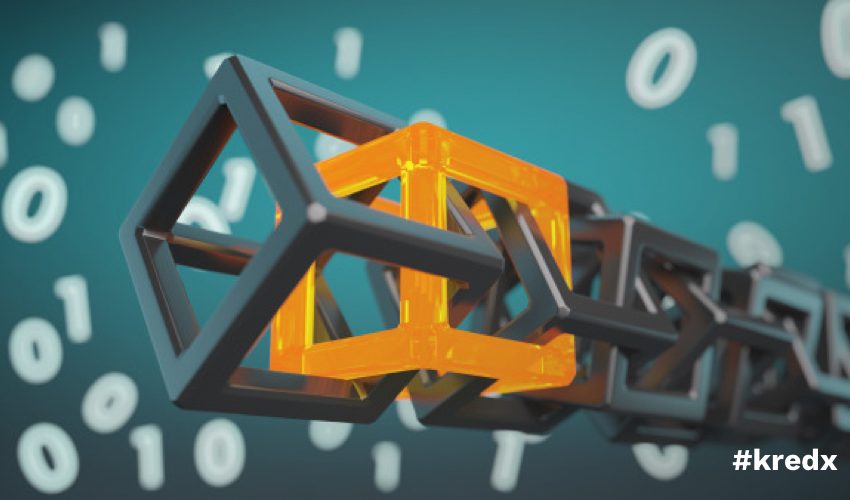
Time For Trust: Can Blockchain Transform Business And The Economy?
If you are involved with a business of any kind, you may have already heard the term ‘blockchain’. However, do you know what it means and what it entails?
Well, in the simplest of terms, a blockchain is a type of database. As you would expect, such a chain is used to store information.
However, the distinct difference between it and other databases is the way in which the information is stored. As the name suggests, a blockchain stores data in solitary blocks, which are then chained together. When new data enters and fills up one of these blocks, it is chained together with the previous one.
What Is The USP Of A Blockchain?
Till now, it may seem that a blockchain is a regular database. However, some of its properties distinguish its applications from those of other databases.
- A blockchain is a perfect option to use, while storing a ledger of transactions. Any changes in the transactions are universally available to other users of that particular blockchain. Therefore, cheating or manipulating ledgers is impossible with such a system in place.
- The option is also perfect for the maintenance of cryptocurrency, such as Bitcoins. Blockchain encourages decentralisation, in such cases, thereby ensuring that no one group or individual is in control. Instead, all users and Bitcoin earners retain control collectively.
- Information entered into a block cannot be changed or altered in any way. All users can witness such changes taking place. Activities of such nature are recorded permanently.
With that in mind, here is a look at some of the structural differences between a database and a blockchain.
Structural Differences Between A Blockchain And A Database
Refer to the following table when learning about the data structures of the information stored in typical databases and in blockchains.
Factors |
Database |
Blockchain |
| Storage Technique | Database information is generally stored using a tabular format, not unlike the one you are reading now. This table structure enables users to locate the necessary data from thousands available on this database. | A blockchain, on the other hand, stores information inside blocks. These blocks come with a specified amount of storage space. After one block fills up, it is attached to the overall chain, containing innumerable such blocks. |
| Chronology | A database’s information may or may not be time stamped. Thus, a user accessing data from these units may not know when this data was integrated into this system. | Blockchain data are always time-stamped. What’s more is that such blocks are always structured chronologically, based on when a particular data was added. |
Blockchain And Its Uses In Various Fields
You may think that this secure database is only suited for storage of financial transaction records or digital currency. However, you would be remiss to assume the same.
Blockchain is slowly revolutionising how data storage and interpretation occur across various sectors. Below are some of the areas where you can find its implementation today –
-
Medical Data
An individual’s medical records are confidential documents, which healthcare centres must maintain securely. Failure to do so can lead to litigation and other issues. A blockchain can store such sensitive material, without any risk of duplication or alteration, under any event. Moreover, with proper encoding, health centres can ensure that only a select few senior physicians can access a patient’s medical files.
-
Property Records
When you buy a property, the very first order of business is to complete its registration. This certificate, along with the deed of your property, tax receipts, and many other official documents are essential to settle property disputes. Instead of individual owners maintaining physical copies of their property records, government entities can employ a blockchain storage method for all such deeds digitally.
Not only would doing so reduce headache for property owners with maintaining these records, but it would also ensure higher confidence regarding the legitimacy of these papers.
-
Supply Chain Tracking
Blockchain is the perfect storage model for businesses where large-scale tracking is necessary. For instance, this method can help an FMCG company to track the farm from where a particular food product originated, along with other details. This enables a simple verification process for product authenticity.
As you can see, blockchain can revolutionise not only the financial sector but also other areas. Still, its potential in future banking and currency management cannot be discounted. Businesses with widespread access to a range of loans, including MSME loans, invoice discounting, and more can use this specialised data for tracking repayments as well.
Bottom Line
Blockchain is a new-age digital database, where the data is stored using blocks. Any information stored in such databases cannot be altered or changed. This has led to its use in the financial sector, most popularly for maintenance of the cryptocurrency, named Bitcoin. However, its use is not limited to the financial sector alone.



